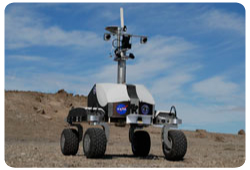Error message
Notice: Undefined index: main_menu in include() (line 47 of /home/yntiqoevbp1j/public_html/sites/all/themes/kanji/page.tpl.php).
 Custom Solutions
Custom Solutions
Widetronix is actively seeking for new ways to integrate betavoltaic devices into new or existing products. Our engineering team can work with you to develop betavoltaic-enabled devices and sensing platforms. We currently offer pre-production prototypes and custom research devices for qualified customers. Understanding the benefits and limitations of betavoltaic technology is important for appropriate device design.

Benefits:
- Energy dense, small form factor
- Long lifetime
- Reliable power source, not affected by environmental factors
Limitations:
- Low instantaneous power output (10's-100's nanowatts)
- Higher cost than traditional battery technology
Key concepts for designing betavoltaic-enabled devices include:
- Duty Cycling – Store power produced by the betavoltaic over a period time before periodically running events (i.e. sensing or transmission). The betavoltaic sizing is based on how often you need to run the events, rather than for maximum power consumption.
- Transmit Distance –Design networks that transmit data across a sensor relay, rather than trying to transmit directly to the receiver. This allows for less power to be used during each cycle.
- Small Size – Betavoltaic technology can be scaled down below traditional battery technologies. Size-constrained devices are prime applications for betavoltaics.
- Complimentary Technology – Betavoltaic devices are complementary to energy-harvesting and storage devices. For example, a betavoltaic can continuously power a microcontroller in sleep mode and store energy in a capacitor or thin-film battery. Higher-energy activities, such as data transmission, can be powered by a variety of energy-harvesting devices.
There are an increasing number of ultra-low power electronic components, such as MEMs sensors, processors, and RF antennas. This low-power trend makes betavoltaics well-suited for many new and exciting applications. Please contact us if you would like to learn more about how we can assist with your application.
 Custom Solutions
Custom Solutions 